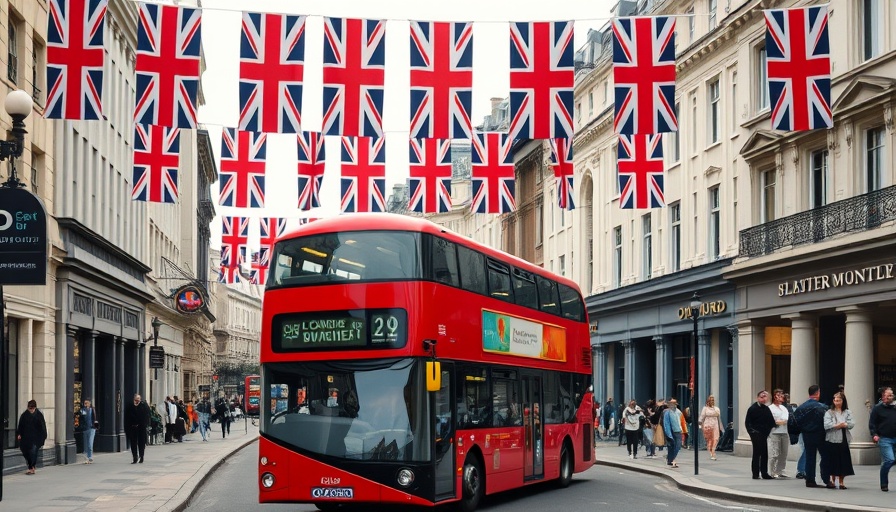
The Mayor's Car-Free Day: A New Chapter for Oxford Street
Recently, London Mayor Sadiq Khan made waves with the announcement of a car-free day on Oxford Street, a major thoroughfare in the heart of the city. Scheduled for September 21, this event aims to showcase the potential benefits of transforming this iconic street into a pedestrian-friendly space. However, the announcement was not without controversy, as the Westminster City Council claims they received only an hour's notice about the Mayor's press release before it went public.
This short notice has sparked criticism from local leaders who feel sidelined in the decision-making process. Conservative Councillor Tim Barnes called into question Khan’s commitment to meaningful engagement, arguing that timely discussions should precede such significant announcements. The Mayor's Office refuted these claims, calling them ‘completely untrue’ and asserting that they have been in regular communication with the council regarding wider pedestrianisation plans.
Community Engagement: A Crucial Component
The effectiveness of urban initiatives often hinges on collaborative dialogue between city officials and local stakeholders. While Khan is set to present a vision of a vibrant, no-traffic Oxford Street, it’s clear that many in the Westminster City Council feel bypassed. Effective governance relies on building bridges with local leaders and constituents, ensuring that everyone has a voice in shaping their community’s future.
This situation raises an important question: how can urban policymakers better involve the community in decision-making processes? Engaging residents and local businesses early on could potentially lead to more harmonious developments that reflect the desires and needs of those most affected.
Oxford Street's Vision: A Test for Long-Term Plans
The September car-free trial is not just a celebration but also a critical gauge for the proposed permanent pedestrianisation of Oxford Street. Previous consultations showed that a notable 70% of respondents backed the Mayor's ideas for rejuvenating the street, with two-thirds supporting the pedestrianisation concept. Such enthusiasm is promising, but executing this vision will require robust support and input from various stakeholders.
Future Predictions: The Path Ahead for Urban Streets
As London continues to navigate urban challenges, the need for sustainable living practices is imperative. Pedestrianisation can significantly reduce vehicle emissions, enhance safety for pedestrians, and promote local businesses, all while fostering a more hospitable city environment.
Experts suggest that if the Oxford Street trial proves successful, it could pave the way for further car-free initiatives across London, amplifying the city’s commitment to sustainability and responsive urban design. As we anticipate the future, there’s potential for a broader transformation that aligns with modern priorities of health and environmental consciousness.
Unique Benefits of Knowing About Oxford Street's Plans
Understanding the ongoing developments around Oxford Street is more than just tracking local news; it’s about being part of a larger conversation regarding urban transformation. For young homeowners and community members, staying informed provides opportunities to engage in local governance. Knowledge translates into active citizenship, making it possible for residents to advocate for sustainable practices and responsible development that will shape their living environments.
What’s Next: Join the Conversation
The pending car-free day on September 21 isn’t merely an event; it’s an invitation for Londoners to reimagine their city together. As discussions surrounding pedestrianisation continue to unfold, residents, especially young homeowners, have a chance to voice their opinions and shape the outcome of such transformative plans. Will you be part of the journey to make London more pedestrian-friendly?
 Add Row
Add Row  Add
Add 




Write A Comment